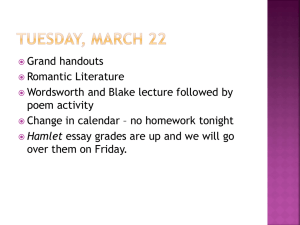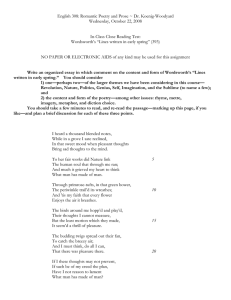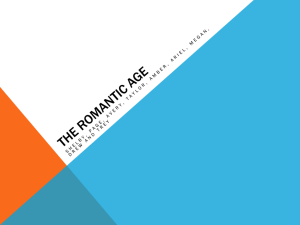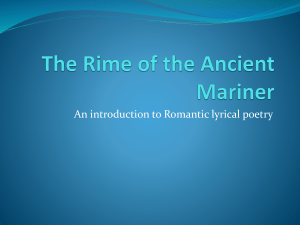Uploaded by
Nathalia Moncayo Ramirez
Lyrical Ballads: Wordsworth & Coleridge's Romantic Poetry
advertisement
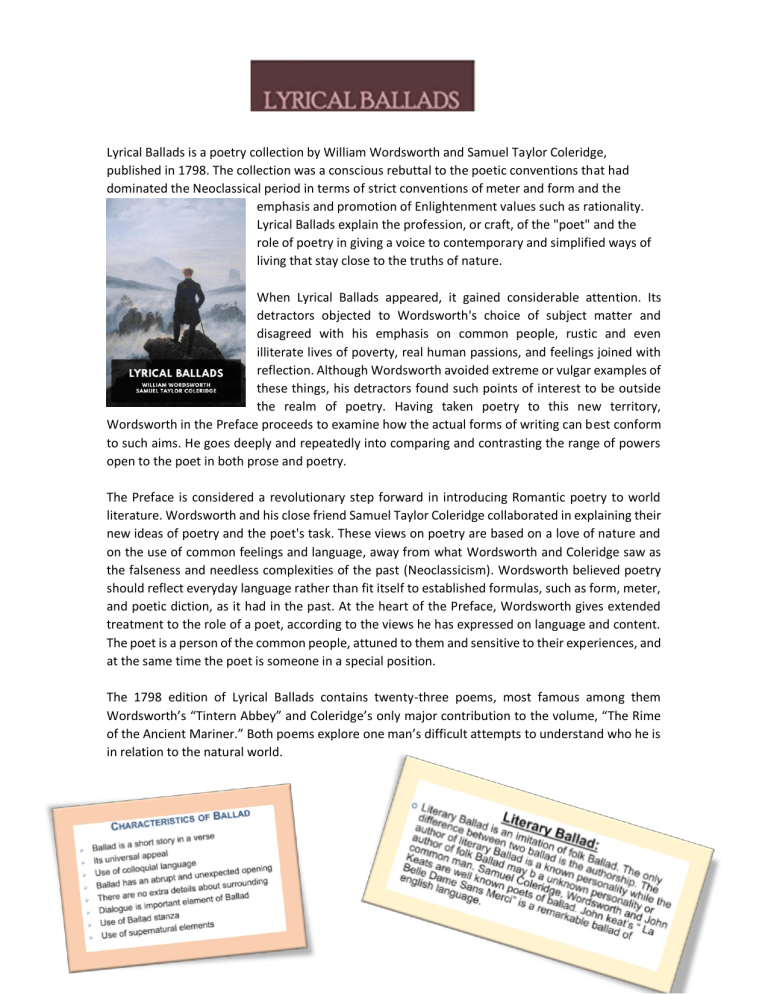
Lyrical Ballads is a poetry collection by William Wordsworth and Samuel Taylor Coleridge, published in 1798. The collection was a conscious rebuttal to the poetic conventions that had dominated the Neoclassical period in terms of strict conventions of meter and form and the emphasis and promotion of Enlightenment values such as rationality. Lyrical Ballads explain the profession, or craft, of the "poet" and the role of poetry in giving a voice to contemporary and simplified ways of living that stay close to the truths of nature. When Lyrical Ballads appeared, it gained considerable attention. Its detractors objected to Wordsworth's choice of subject matter and disagreed with his emphasis on common people, rustic and even illiterate lives of poverty, real human passions, and feelings joined with reflection. Although Wordsworth avoided extreme or vulgar examples of these things, his detractors found such points of interest to be outside the realm of poetry. Having taken poetry to this new territory, Wordsworth in the Preface proceeds to examine how the actual forms of writing can best conform to such aims. He goes deeply and repeatedly into comparing and contrasting the range of powers open to the poet in both prose and poetry. The Preface is considered a revolutionary step forward in introducing Romantic poetry to world literature. Wordsworth and his close friend Samuel Taylor Coleridge collaborated in explaining their new ideas of poetry and the poet's task. These views on poetry are based on a love of nature and on the use of common feelings and language, away from what Wordsworth and Coleridge saw as the falseness and needless complexities of the past (Neoclassicism). Wordsworth believed poetry should reflect everyday language rather than fit itself to established formulas, such as form, meter, and poetic diction, as it had in the past. At the heart of the Preface, Wordsworth gives extended treatment to the role of a poet, according to the views he has expressed on language and content. The poet is a person of the common people, attuned to them and sensitive to their experiences, and at the same time the poet is someone in a special position. The 1798 edition of Lyrical Ballads contains twenty-three poems, most famous among them Wordsworth’s “Tintern Abbey” and Coleridge’s only major contribution to the volume, “The Rime of the Ancient Mariner.” Both poems explore one man’s difficult attempts to understand who he is in relation to the natural world.
